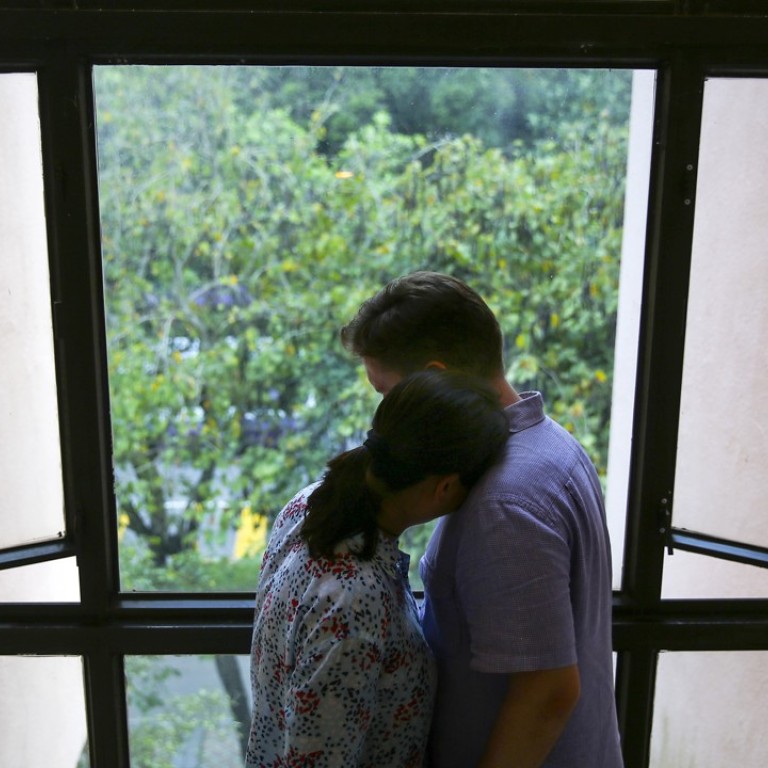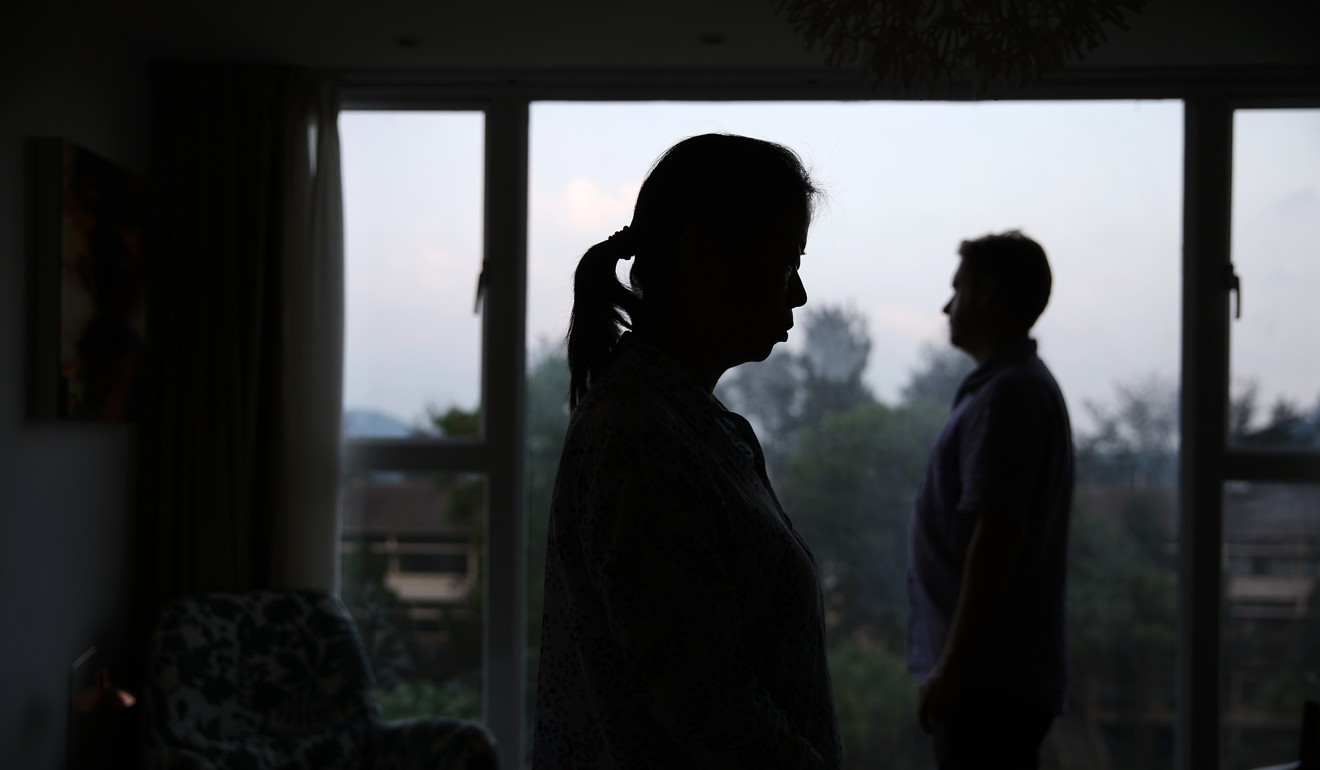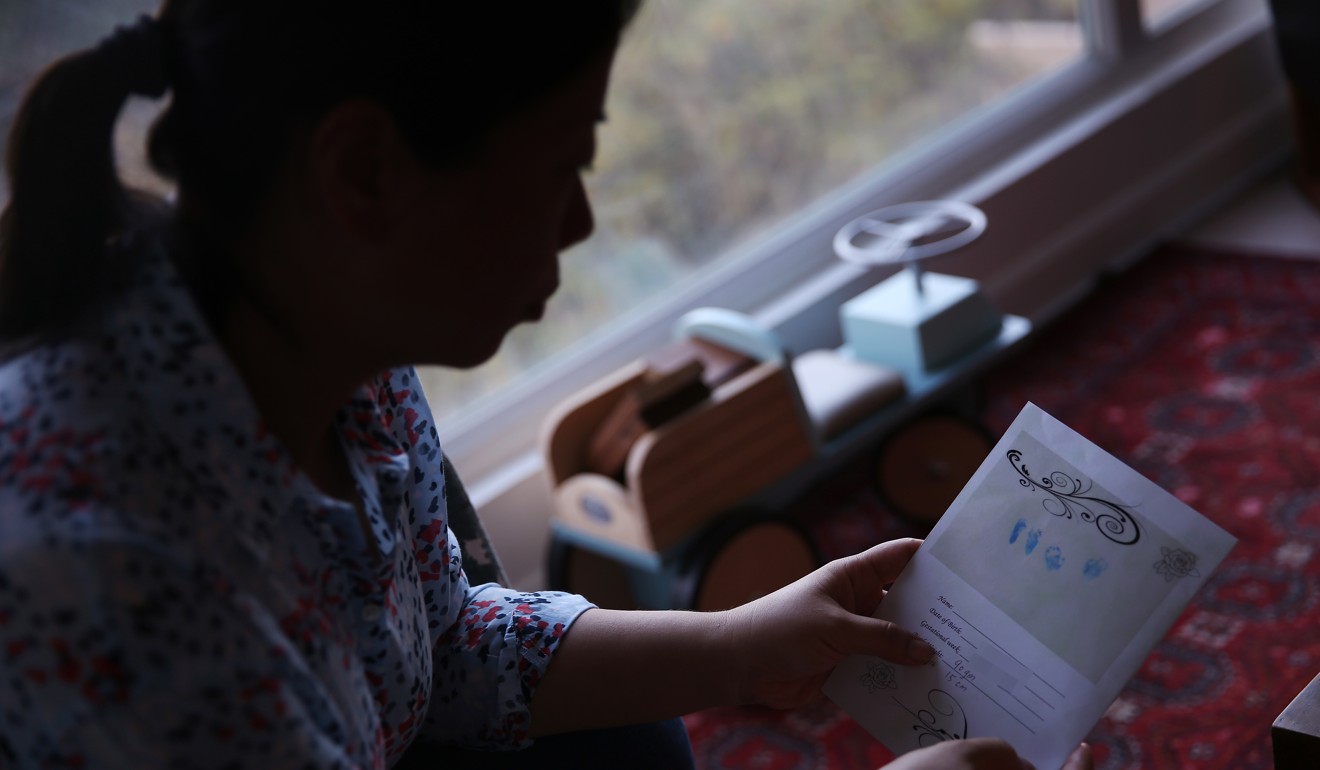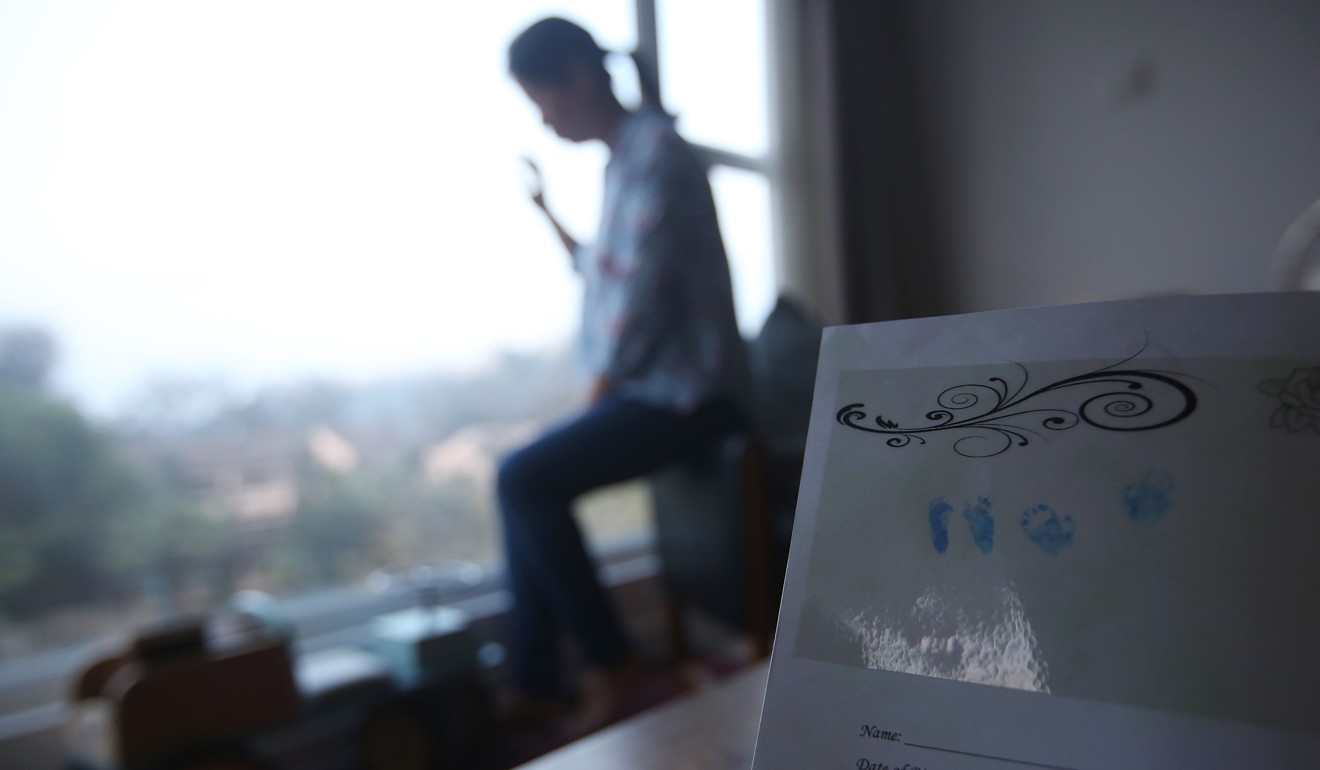
Hope for Hong Kong couple stuck in bureaucratic battle over attempt to bury baby lost in miscarriage
Couple’s son was lost 15 weeks into pregnancy, which means hospital considers fetus to be clinical waste for disposal in landfill, but it may release body if conditions are met
There is hope finally for a grieving Hong Kong couple whose miscarried son was designated as “clinical waste” by a public hospital, locking them in a heartbreaking bureaucratic battle to get his body back.
The couple have now been informed they can get their baby’s body back as early as next week, provided they fulfil all the necessary procedures for his lawful burial.
During their month-long struggle to retrieve the body from Princess Margaret Hospital, they had been advised to let a “pet crematorium” handle the disposal.
While they are now anxiously waiting for the return of their baby, Wally, who was lost 15 weeks into pregnancy, Kevin and Angela (not their real names) still face a daunting challenge in giving him a proper funeral. The hospital has not granted Wally a recognised status – a struggle faced by more than a dozen mourning couples in Hong Kong over the past year.

No changes have been made since a high-profile case in 2014 highlighted problems with Hospital Authority policy, which classifies a baby lost less than 24 weeks into pregnancy as “clinical waste” for disposal in a landfill. A lawyer called the classification “arbitrary” and without legal basis.
Concern groups say the case also illustrates how the city has fallen behind in parents’ rights compared with countries overseas, many of which already have provisions in place asking medical professionals to acknowledge a mother’s choice.
The ordeal began after Angela was treated for a miscarriage at Princess Margaret Hospital in Kwai Chung in mid-April.
They wanted to arrange a funeral for their son, but were told that since the baby died nine weeks short of the stage at which the public hospital would classify the case as a “stillbirth”, the body would be the hospital’s property.
“I know it’s clinical waste for the hospital, but it’s a baby to us,” Angela told the Post in an emotional appeal.
After a month of exchanges involving a lawyer and two legislators, Dennis Kwok and Charles Mok, the couple were told on Thursday that Wally could be returned as soon as next week, provided they met all the requirements for a proper burial.

A spokesman for the Hospital Authority said parents could apply for the remains of a baby who died at less than 24 weeks, categorised as an abortus or aborted fetus, to be released to them.
Applications would be reviewed on a case-by-case basis to see whether the parents could comply with established principles, including public health and safety requirements set by the Environmental Protection Department.
The controversy centred on medical professionals in Hong Kong defining stillbirth as a “fetus born without sign of life at or after 24 weeks”.
When dealing with earlier deaths, public hospitals refused to issue a “Form 13” to certify a stillbirth under the Births and Deaths Registration Ordinance.
Without the form, a permit cannot be issued for cremation, the most common way of handling dead bodies, thereby impeding parents’ compliance with the requirements.
At one point, the hospital suggested Kevin and Angela dispose of Wally’s body at a pet crematorium, which would not require a permit, in exchange for his release. The father was shocked and called the suggestion “an offence to a grieving family”. The hospital subsequently stopped pushing the idea.
The couple, who are Catholics, have approached the Catholic diocese, which is considering allowing Wally to be buried in a private cemetery it runs. “The Catholic Church is the problem now,” Kevin said, expressing concern they might be turned down.

The Hospital Authority said 14 out of 18 applications lodged between last April and May this year to retrieve aborted fetuses were successful. But there could be more cases of parents who do not apply, even if they want a fetus back.
Dr Cheung Tak-hong of Prince of Wales Hospital, who chairs a central coordinating committee for public hospitals, said the 24-week mark was a medical definition they should stick to.
But solicitor Michael Vidler, representing the couple, called it arbitrary and without legal basis. He argued it was derived from a provision of criminal law on abortions whereby a fetus is considered to be alive after 24 weeks.
Lawmaker Fernando Cheung Chiu-hung has helped with three such cases over the past three years, including a high-profile one in 2014 involving a couple denied access to their child, who was just one week short of the 24 weeks needed for classification as stillborn.
Cheung said he would study the problem and approach relevant government bureaus if new legislation was needed.

